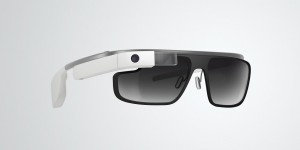 Apps for helping the vision and hearing impaired have been developed and successfully tested locally. For the past six months, Telstra with Australian app developer b2cloud, have been working to create apps on Google Glass for the vision and hearing impaired. Google Glass is a wearable technology that works like a smartphone, displaying information on the lens of the Glass.
Apps for helping the vision and hearing impaired have been developed and successfully tested locally. For the past six months, Telstra with Australian app developer b2cloud, have been working to create apps on Google Glass for the vision and hearing impaired. Google Glass is a wearable technology that works like a smartphone, displaying information on the lens of the Glass.
One app uses Google Glass microphone and heads-up display to transcribe speech, presenting real-time subtitles of a conversation. It will enable users to be more active participants in conversations or meetings with people in a crowded room, rather than having to rely on a laptop or computer. Another app enables those who are vision impaired to receive audio descriptions of objects in front of them. This feature is said to make tasks like shopping, easier with b2cloud managing director, Josh Guest, giving an example when a vision impaired person is holding two cans of the same size. “One is spaghetti and the other is baked beans and the only way to tell the difference is the label. The Google Glass is able to relay that information back to the user by giving them an audio description.”
The device was tested by a group of Telstra employees with vision and hearing impairment and their reactions were “jaw dropping,” Guest said. “It all works, these are real apps that have been trialled amongst users – people who are hearing and vision impaired.”
Meantime in the UK, researchers have begun testing Google Glass as a possible assistive aid for people with Parkinson’s disease. The research team from Newcastle University has been working with a group of Parkinson’s volunteers in trialling the technology to help patients manage their condition. The project team has also been investigating how Glass can be used as a reminder to take medications and keep appointments, as well as providing prompts linked to key behaviours typical of the disease, such as alerting them to swallow to prevent drooling. The researchers too are looking at how the motion sensors in Glass can be used to support people with ‘freezing’ which affects legs, speech and voice.
Parkinson’s Diseases is estimated to affect up to 10 million people worldwide with onset usually in those over 50 years of age.
For more information visit: www.googleglass.com
